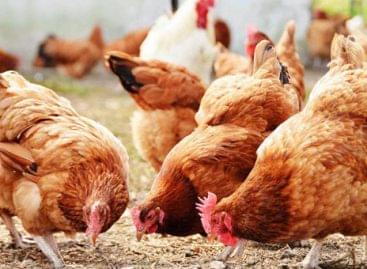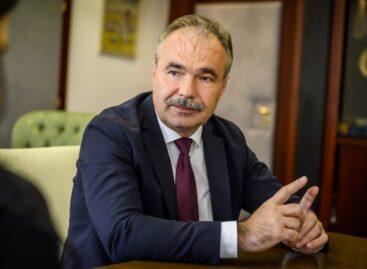Director-General highlights the potential of the bioeconomy to promote sustainable agri-food systems
The Director-General of the Food and Agriculture Organization of the United Nations (FAO), QU Dongyu, today highlighted the importance of bioeconomy to help promote sustainable agri-food systems and also address the impacts of COVID-19.
“A bioeconomy, promoting long-awaited and much needed bio-innovations, should be central to a post-pandemic recovery to build back better and especially to increase the value of biomass in situ increasing efficiency in production processes and minimizing food losses and waste,” the Director-General said.
Speaking at the virtual Global Bioeconomy Summit 2020, he stressed that innovation is key to tap the potential of the bioeconomy, including investments in biotechnology and digital products and the elaboration of new and enabling policies, and cited five important aspects for the international community to focus on:
i). international collaboration between governments and public and private researchers;
ii). comprehensive metrics and data for monitoring systems;
iii) linking to multilateral environmental agreements, such as the Paris agreement on climate change;
iv) strengthening human capital capacity on the science-policy interface;
v) the promotion of research, development and innovation programmes to encourage global collaboration.
The Director-General also called on the international community to rethink food production and consumption, as well as aspects of the food value chain.
“Our attention needs to go to scientific, evidence-based food consumption and how to produce food. Looking at the environmental impacts and change production modes and methods, being contributors to sustainable development. Food efficiency should revisit in terms of environmental impacts not only nutrient intake,” he said.
“This is where digital technologies and modern solutions such as e-commerce come into play as ways of transforming and rationalizing our food systems. How to reuse the food residues for food, feed, fertilizers and fuel should be designed holistically,” he added.
Qu noted that FAO was fostering bioeconomy concepts by supporting South-South and Triangular cooperation in research, development and innovation, while building new multi-governmental partnerships through the FAO-led Sustainable International Bioeconomy Working Group, which brings together representatives from more than 20 countries.
He highlighted that FAO had created an Office for Innovation, established an Office for Climate Change, Biodiversity and Environment, which is coordinating FAO´s efforts for a sustainable bioeconomy and recently appointed its first Chief Scientist. FAO’s flagship Hand-in-Hand Initiative, which matches donors with those countries with the highest rates of poverty and hunger, was another means to share the latest science and technology, he noted.
“FAO is generating knowledge and innovative products, and this is happening by deepening partnerships, not only with governments, but also with academia, civil society, and the private sector,” Qu said.
The Director-General also praised the German Government, which hosted the event, for its role and investment in the bioeconomy.
Germany’s Minister of Food and Agriculture, Julia Kloeckner, said Germany was working to reduce its dependence on fossil fuels in an effort to achieve the UN Sustainable Development Goals by 2030. The Minister noted that the German Government had invested €1 billion euros this year in research and development related to the bioeconomy and enthusiastically supported FAO’s Sustainable International Bioeconomy Working Group.
The Global Bioeconomy Summit is a high-level, biennial international conference which invites representatives from government, science and innovation, business and civil society to focus on the future development of a sustainable bioeconomy. The Summit was established by the Bioeconomy Council of the Federal German Government in 2015 and links bioeconomy policy closely to global sustainable development and climate agendas.
Related news
The EP accepted the safeguard clauses concerning the Mercosur agreement
🎧 Hallgasd a cikket: Lejátszás Szünet Folytatás Leállítás Nyelv: Auto…
Read more >Related news
Brits Embrace At‑Home Celebrations While Germans Cut Back on Valentine’s Day Spending
🎧 Hallgasd a cikket: Lejátszás Szünet Folytatás Leállítás Nyelv: Auto…
Read more >








